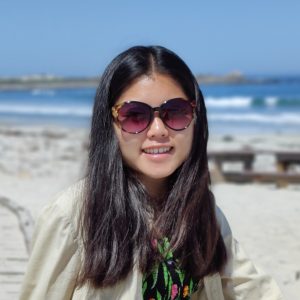 Yi-An Hsieh, SEAS ’23, Anaheim, CA
Yi-An Hsieh, SEAS ’23, Anaheim, CA
This summer I worked on a research team that spans the Kamoun Lab at Penn (HUP), the Urbanowicz (URBS) lab at Cedars Sinai, and the Gragert Lab at Tulane Cancer Center. Because the team was spread across different edges of the US, the bulk of our work was remote, with meetings over Zoom and an active Slack workspace. It showed me that this type of research energy that could not be dampened despite the distance.
Over 14 weeks, I learned about different ongoing projects and the wide expertise the multidisciplinary team had which brought the projects together. The overarching research focus was finding HLA mismatches that are associated with independent, incremental risk for kidney graft failure, and then using this data to predict graft survival and times of graft failure. Broadly, this involved a bioinformatics component for parsing patient data and a machine learning component which identified amino acids of interest. However, many smaller projects that fit into furthering this research were carried out simultaneously. I was one of three interns, each allowed to pursue their own project under the guidance of the three PIs, but all allowed to collaborate to develop ideas.
My project focused on optimizing and improving a previously developed feature selection genetic algorithm. The algorithm is used to find rare amino acid polymorphisms in the antigen recognition site of human leukocyte antigen (HLA) molecules. I created a strategy to better select features by increasing risk stratification. I also reduced the runtime of the algorithm, which was a barrier to running a larger number of learning iterations, as well as inputting larger sets of features as candidates. I worked closely with another intern to write experiments on simulated datasets that quantified how the algorithm improved in accuracy and better handled different types and levels of noise.
Overall, this research experience exposed me to machine learning research for genetic data, which I have not had much opportunity to touch upon through coursework or through extracurriculars. It was a great opportunity for me to explore outside of the research I was already engaged in on campus, which focuses on cell immunotherapies, especially as the field for using ML/AI to develop therapies in a faster, less expensive, and more effective way is expanding.
This is part of a series of posts by recipients of the 2022 Career Services Summer Funding Grant. We’ve asked funding recipients to reflect on their summer experiences and talk about the industries in which they spent their summer. You can read the entire series here




